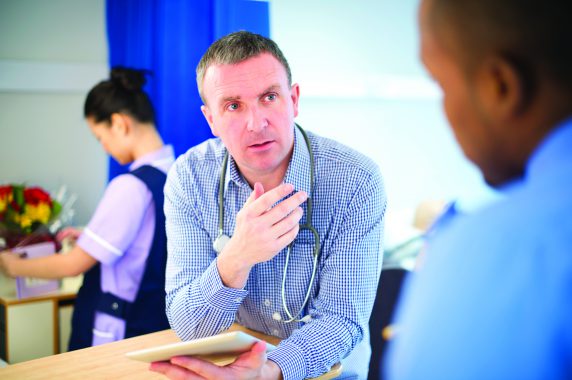Only one in 20 GP trainees will work full-time in general practice in ten years

Only one in 20 GP trainees see themselves working full time in general practice in ten years’ time – half the percentage of the 2016 cohort – according to a new study by the King’s Fund.
The survey of 840 GP trainees also found that only a quarter (27%) saw themselves working full time in general practice after a year, compared with 31% in 2016.
Fewer GP trainees in England are considering GP partnerships because of financial implications and a lack of business training, with over one in four trainees (41%) considering becoming a GP partner in 10 years’ time, which is a decrease from the 45% in the 2016 survey.
The authors said that unless the next Government can fix the problem of unsustainable workloads, the ‘political arms race’ of increasing GP numbers will ‘fast become broken promises’.
It comes as NHS Digital data reported the number of fully qualified full-time equivalent GPs in England has dropped by 339 in the past year.
Results also show over half of trainees (51%) said they would consider portfolio working later in their career – around five years after qualifying – an increase from the 2016 survey in which 44% said they would consider working flexibly.
The main reasons for choosing part-time or portfolio work is due to the intensity of the working day, according to respondents.
One respondent said: ‘The days are too long to even exercise – there’s no “balance” or promoting health when you can’t even achieve health yourself.’
Almost one-quarter of trainees (24%) said that the intensity was driven by a lack of staff, but some also said that increasing patient complexity and expectations from the public were factors in believing future workload would become unmanageable.
Senior fellow at The King’s Fund, Beccy Baird said: ‘Given it is likely that many new GPs will spend only part of their working week in general practice, promises of 5,000 or 6,000 more full-time equivalent GPs will mean finding many more individual GPs, potentially as much as half as many again.
‘There appears to be a political arms race for who can set the highest target for recruiting new GPs, but unless the next government addresses the unsustainable workloads that cause GPs to leave or reduce their hours, those aims may fast become broken promises.’
Recent UCAS figures have reported a record number of students applying for medicine courses at university.
Meanwhile, Health Education England revealed last month that it has surpassed its target of GP training places, which over 3,500 GP trainees being accepted in the past year.
Pulse October survey
Take our July 2025 survey to potentially win £1.000 worth of tokens











